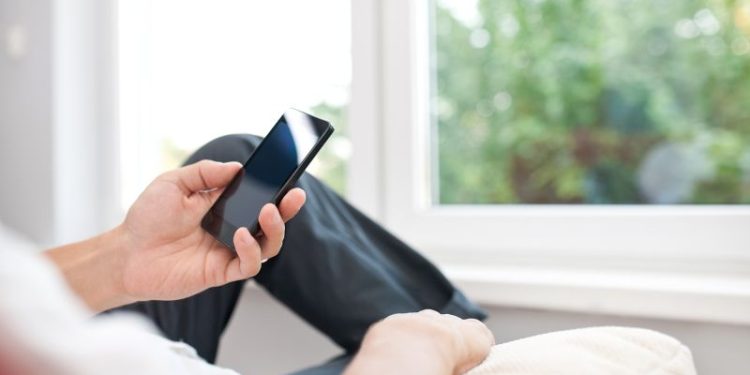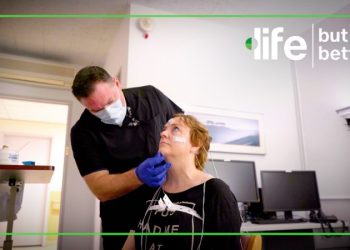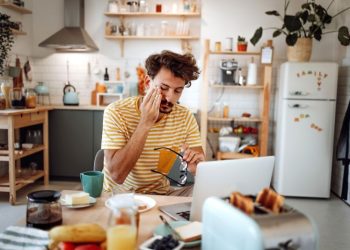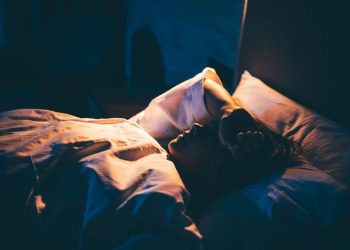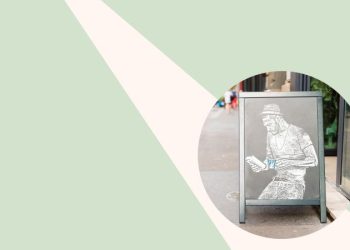Find yourself yawning a lot? Do you need that third or fourth cup of coffee to make it through the afternoon at work? Such signs of sleepiness may be a red flag of a serious sleep deficit that could put you in physical danger and harm your long-term health, according to a new position paper by the American Academy of Sleep Medicine.
“Sleepiness is a serious health concern with wide-reaching consequences,” said AASM President Dr. Eric Olson, a pulmonologist and sleep medicine specialist at the Mayo Clinic in Rochester, Minnesota.
“From drowsy driving crashes to workplace errors and long-term health risks, the effects of excessive daytime sleepiness impact individuals and society every day,” Olson said in a statement about the paper, which is supported by 25 different medical organizations including the American Academy of Neurology, the National Safety Council and the American Academy of Family Physicians.
Not getting a quality night’s rest of at least seven to eight hours has been linked to the development or worsening of diabetes, depression, heart and kidney disease, high blood pressure, obesity and stroke, experts say.
“With one-third of U.S. adults reporting they experience excessive sleepiness, the importance of identifying interventions that recognize, assess, and treat it cannot be understated,” Olson added.
All too often people write off signs of sleepiness, such as dozing off during a work meeting, as an insignificant issue instead of a sign of a potentially dangerous sleep deficit, experts say.
“Nodding off in boring meetings is an indication of insufficient sleep. Someone who is fully rested will not fall asleep in meetings, no matter how boring the meeting is,” said sleep specialist Kristen Knutson, an associate professor of neurology and preventive medicine at Northwestern University’s Feinberg School of Medicine in Chicago.
“Excessive daytime sleepiness can impair performance and be an indicator of underlying sleep disorders or other issues,” Knutson said via email. “If someone is experiencing excessive daytime sleepiness regularly, they should discuss this with their physician.”
A hidden danger
The body does odd things when it’s continuously sleepy, including overcoming those yawns and sending signals that you are, in fact, coping with the lack of sleep. However, those signals couldn’t be further from the truth, said AASM board member and second author Dr. Indira Gurubhagavatula, a professor of sleep medicine at the Veteran’s Administration Medical Center at Penn Medicine in Philadelphia.
“The unfortunate thing is data shows that with chronic partial sleep deprivation the ability to perceive our own level of impairment is no longer accurate — we think we’re OK when we’re really not,” Gurubhagavatula said.
“When we do actual tests to measure how well your brain is functioning — reaction time, the ability to recall, memory tests, coordination — we find people are actually making a lot of mistakes,” she said. “And it’s scary because they still have this inappropriately high level of confidence that they are OK.”
With continued sleepiness, the brain may take mini naps, or what specialists call microsleeps, Gurubhagavatula said.
“Your brain is actually going into brief two-second, three-second, 10-second microsleeps and then popping back out and you may not even realize this is happening,” she said. “It can be very dangerous if you’re driving or doing something that involves safety. So if you do feel like you might fall asleep, pay attention to that, as it’s an indication it’s not safe to drive.”
About 100,000 car accidents a year are linked to drowsy driving, according to statistics.
Tests of sleepiness
How do you know if your sleepiness is crossing into the danger zone? You can measure it on various scales, including the Epworth Sleepiness Scale, Gurubhagavatula said.
Questions on the test include how likely you’ll fall asleep while sitting quietly after a lunch with no alcohol; lying down in the afternoon; sitting inactive in a public place; sitting and reading; sitting and chatting with someone; riding as a passenger in a car for an hour; sitting in traffic for a few minutes while driving; and watching television.
“We ask patients to rate from zero to three how likely they are to fall asleep during these eight sedentary situations,” she said. “The maximum score is 24, which indicates that you’re very, very sleepy. We generally consider scores above 10 to being clinically significant and worth intervention.”
As sleep deprivation progresses, dangerous symptoms of sleepiness can increase, Gurubhagavatula said.
“You have droopy eyelids, your body is slumping, you’re having trouble staying upright, and some people even notice vertigo, the room spinning, hands shaking with severe deprivation,” she said. “You can also be reckless and impulsive, like you don’t care. That’s another symptom.”
Additional causes of sleepiness
Sleep disorders such as sleep apnea, insomnia, restless leg syndrome and circadian rhythm sleep disorders, as well as chronic pain conditions and medications can also contribute to sleepiness, which will be ruled out by a sleep specialist.
“You can also ask your pharmacist about your prescriptions, and you should also consider any over-the-counter medications,” Gurubhagavatula said.
Certain lifestyle behaviors also can contribute to chronic sleepiness, experts say.
“Things like too much caffeine, alcohol use before bed, using marijuana, the amount of exercise you’re doing, and practicing poor sleep hygiene, such as sleeping in a bright, cold, hot or noisy bedroom, will definitely affect how your sleep will be organized and how refreshing it’s going to be,” Gurubhagavatula said.
Many people turn to alcohol or marijuana in the mistaken belief that it can improve sleep. While alcohol appears to make it easier to fall asleep, the body will wake in the middle of the night once the alcohol is metabolized, experts say.
“I have patients that are very surprised how much better their sleep is when they get rid of that one drink they have with dinner,”Gurubhagavatula said.
“As for marijuana, we know it actually has unwanted side effects on sleep. The efficiency of your sleep decreases, and how tired you feel the next day increases, so sleep quality actually starts to go down.”

